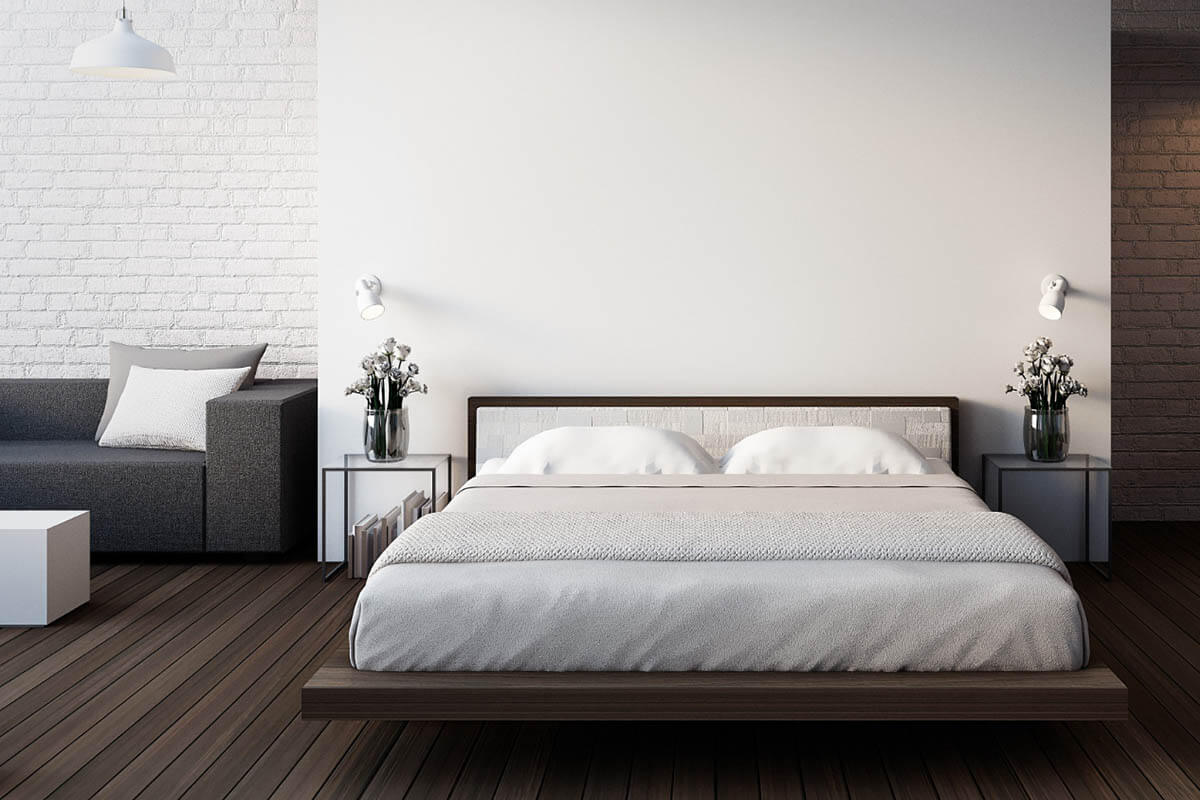
The autumn season means returning to work; it's the time to start new projects, change your place of residence, and pay attention to various variables related to rented housing. According to the latest data published by INE, in Spain, more than 3,200,000 tenants live in rented apartments and pay an average monthly price of 819 euros.
In addition to the high rental prices, new rules, and taxes, one of the biggest problems landlords and tenants face is repair costs. The fact is that sometimes it is difficult to understand who pays for what.
CONTENT:
- Spanish Urban Lease Act
- Under which circumstances is the lessor not obliged to make repairs at their own expense?
- Actions of the tenant regarding repairs to maintain rented housing
- Can the tenant repair his house and seek compensation from the landlord?
- The most common breakdowns and responsible persons
- Obligations of the lessor
- Spain-Real.Estate will help you choose a property in Spain
SPANISH URBAN LEASE ACT
The Urban Lease Act (Ley de Arrendamientos Urbanos or LAU) in Spain says that the landlord is obliged to repair housing at his own expense to preserve the rented accommodation.
Article 21.1 of the LAU provides as follows:
"The lessor is obliged, without the right to increase the rent, to make any repairs necessary to preserve habitable housing conditions for agreed use except when the deterioration in question is imputed to the tenant under articles 1.563 and 1.564 of the Civil Code."

Under which circumstances IS THE LESSOR NOT OBLIGED TO MAKE REPAIRS AT THEIR OWN EXPENSE?
There are 3 restrictions or exceptions under which the landlord is not obliged to make repairs at his own expense:
- Minimum or lower limit.
Article 21.4 of the LAU does not oblige the landlord to make minor repairs with minimal wear and tear to the dwelling.
The tenant will pay for these repairs.
- Maximum or upper limit.
If the housing collapses and falls into disrepair for reasons not attributed to the landlord, the lease is terminated (Article 28 LAU).
- Damage to property caused by the fault of the tenant.
Any deterioration of the rented housing is considered to be caused by the tenant responsible for it unless he proves that the damage was caused through no fault of his (Articles 21.1 LAU and 1563 and 1564 of the Civil Code).
ACTIONS OF THE TENANT REGARDING REPAIRS TO MAINTAIN RENTED HOUSING
Suppose the rented housing conditions have deteriorated and require repairs necessary to preserve habitable housing conditions for its agreed use. In that case, the tenant is subject to a double requirement, namely:
- Notify the landlord about the repair as soon as possible.
- Provide an opportunity for the tenant or technical specialists to check the housing condition (Article 21.3 LAU).
If the landlord refuses to make the repairs at his own expense to preserve the rented house, the tenant must apply to the court with the following requirements:
- Terminate the contract for the damage compensation (Article 27.3 A LAU).
- Make repairs by the landlord with payment for the damage caused to the tenant (Articles 1,556 and 1,098 of the Civil Code).
CAN THE TENANT REPAIR THE HOUSE AND SEEK COMPENSATION FROM THE LANDLORD?
According to Articles 21.3 of the LAU and 1159 of the Civil Code, only after prior notification of the lessor, the lessee can make repairs and then demand from the lessor the amount of compensation for which 2 main requirements must be met. This determines the success of the claim to recover the amount of payment. The 2 main requirements are as follows:
- Notify the landlord about the repair. It is enough for the landlord to be informed by the tenant.
- Repairs should be urgent to avoid damage or discomfort.

THE MOST COMMON BREAKDOWNS AND RESPONSIBLE PERSONS
The air conditioner no longer cools/works as well, the kitchen faucet leaks, a lock is broken in the bathroom, there are holes in the wall from paintings, or the washing machine does not work - these are some common household problems. When housing is owned, the landlord bears the repair costs. However, if the accommodation is rented, the prices are shared among the owner and the tenant, depending on the type of damage. The question is, who pays for what?
HomeServe research
According to a study by HomeServe, a company specializing in home maintenance, 4 out of 10 houses in Spain have at least 1 breakdown per year; this amounts to more than 800,000 repairs in rented apartments. Consequently, there are more than 800,000 situations where the landlord and the tenant must agree on liability. According to HomeServe data for 2021, 33% of the repairs were related to plumbing problems. This is followed by painting services (9.44%), bricklaying (8.89%), and household appliances (8.03%).
Practical examples
HomeServe analyzed the most common home repairs to determine which are related to "preservation and suitability of housing" and which are related to "minor repairs" as provided for in the City Rent Act.
Plumbing breakdowns
This is one of the most common plumbing breakdowns in rented apartments, as HomeServe notes. In these cases, the responsibility lies with the homeowner. However, if there is a large-scale water leak, the tenant pays the high price of the bill. Therefore, it is recommended to look for a solution as soon as possible.
Other common plumbing failures are blockages in the toilet, sink, and bathtub that can lead to leaks, and the repair price can be up to 200 euros. In cases of blockages and high humidity flooding, the tenant must deal with the breakdown if he misused household appliances: damage, clogging of drains, improper disconnection of the washing machine hose that would cause a leakage, humidity due to poor sealing of the bath, or lack of ventilation. The landlord is obliged to respond to defects in housing.
Heating and air conditioning
Intensive use of heating and air conditioning in certain rooms or devices older than 5 years can lead to frequent breakdowns. Except for violations by the lessee, the lessor is responsible for the maintenance and good condition of these devices.
Appliances
HomeServe explains that it is essential to distinguish between basic household appliances (refrigerator, washing machine) and secondary ones (dishwasher).
There are questions about who should bear the repair costs with such breakdowns. OCU Fincas y Casas clarifies that if, for example, there is an internal defect in the boiler, the lessor must bear the costs. But if it is necessary to replace the valves of the device, the tenant can do it for a limited fee. For example, the court released a tenant from repairs, the amount of which was equal to half of a new washing machine.
HomeServe advises the tenant and the lessor to properly maintain the equipment, for example, cleaning the filters of devices promptly to avoid breakdowns that can lead to costs of 150 euro to repair or even a replacement of the device.
Painting, bricklaying, and crafts
Many holes in the wall from paintings or if a lamp falls off its hook are minor issues caused by household appliances that the tenant has to take on.
OBLIGATIONS OF THE LESSOR
The primary responsibilities of the landlord are set out in various articles of the Law "On City Rent" and can be summarized as the following.
The lessor is obliged to:
- Keep the housing in a livable condition. This is the primary responsibility of every landlord of housing. It implies making all types of repairs in the house to ensure that it is livable without increasing the rent.
- Comply with the terms of the contract. The lessor cannot terminate the contract except for non-fulfillment by the lessee of any of the cases provided for by law (for example, the use of housing for himself or his relatives). The lease term must be at least 3 years.
- Return the legal deposit. In case of termination of the lease and absence of any debts of the lessee, the lessor must return the monthly deposit for rent provided by the lessee when the contract was signed.
- Allow the lessee to assign the contract to other persons in some cases. The landlord is obliged to continue renting housing even if it is not the tenant who lives in it but his spouse or children. In separation or divorce, the tenant's spouse can become a landlord by a court decision.
- Pay municipal taxes and fees. The landlord must pay taxes such as property tax or garbage collection, although this may affect the tenant's payment.
It is essential to keep in mind that if you are the owner of a rented house and you do not fulfill your obligations as a landlord, the tenant has the right to demand the execution and termination of the contract and compensation for damages.
Consequently, the advice of a lawyer specializing in leasing is crucial for you to know all the rights and obligations before signing the contract and any problems during the lease.

SPAIN-REAL.ESTATE WILL HELP YOU CHOOSE A PROPERTY IN SPAIN
Specialists in Spain-Real.Estate will help you find the best accommodation to rent or buy in Spain. We have an extensive database of real estate in the best areas of Spain and experience in finalizing purchase and sale transactions and lease agreements. The manager's detailed advice and answers to any of your questions are available via the website.
